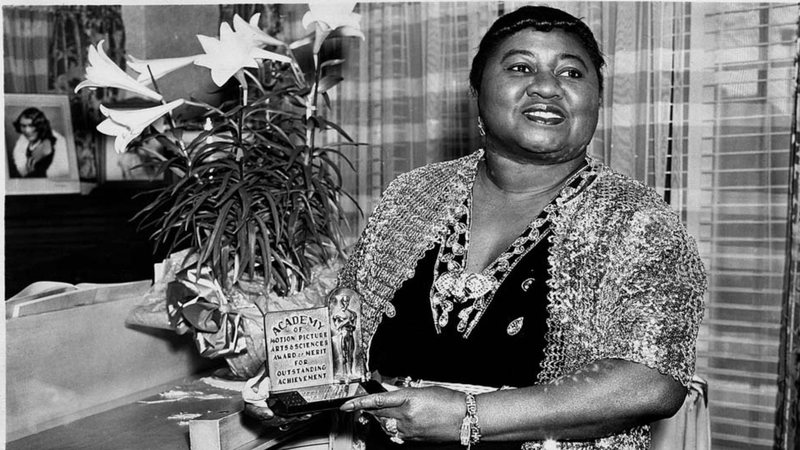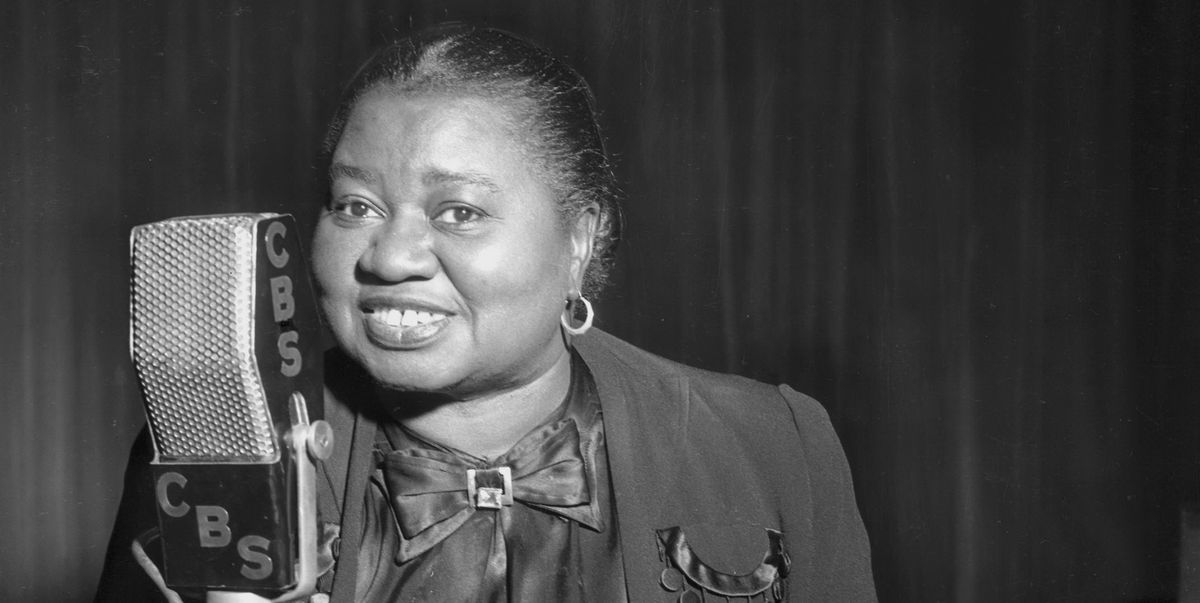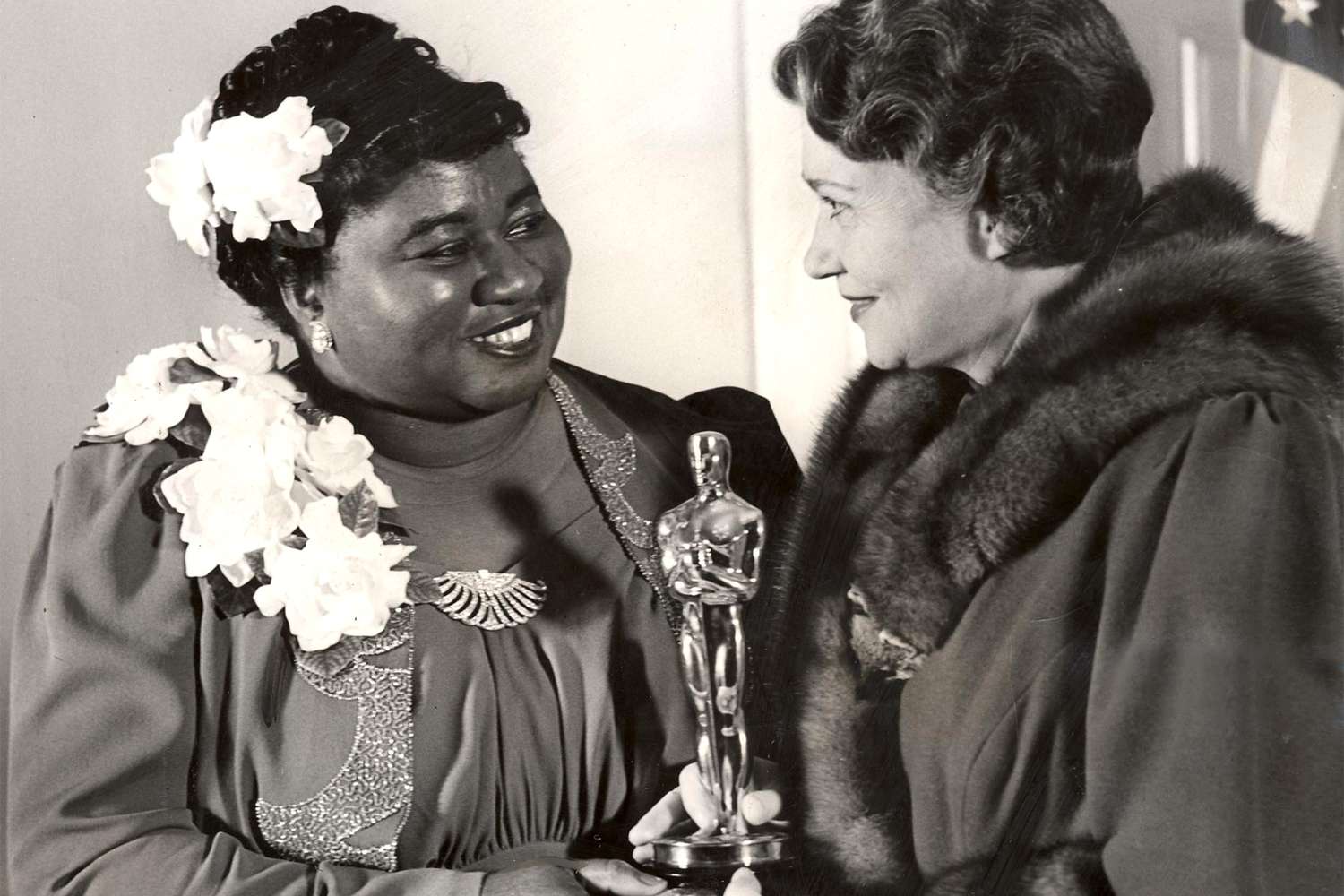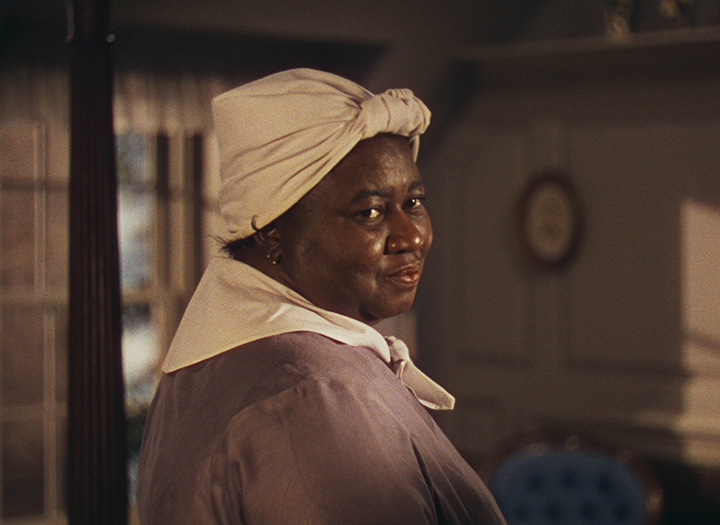Hattie McDaniel was an American actress and comedian, popularly known for being the first black person to win an Oscar for her role as Mammy in Gone with the Wind (1939). Aside from acting, Hattie McDaniel was also a singer, radio performer, and television personality; she was the first Black woman to sing on radio in the United States. Despite experiencing racism and racial separation throughout her career, here is how Hattie McDaniel built a pioneering career for black women in Hollywood.
Biography
Hattie McDaniel was born in 1893 to formerly enslaved parents in Kansas. Her mother, Susan Holbert, was a gospel singer, and her father, Henry McDaniel was a soldier, who fought in the American Civil War with the United States Colored Troops. She attended Denver East High School, where she exhibited her musical and dramatic talent early.
Hattie left school in 1910 to become a performer in several traveling minstrel groups. She had honed her songwriting skills while working with her brother Otis McDaniel’s carnival company, a minstrel show. She and her sister Etta Goff launched the McDaniel Sisters Company, an all-female minstrel show in 1914. After the death of her brother Otis in 1916, the troupe began to lose money, and popularity, pushing Hattie to embark on a radio career, singing with George Morrison’s Melody Hounds
With the onset of the Great Depression, there was little work for Minstrel groups, so to support herself Hattie went to work as a bathroom attendant at a Club. Although the club hired only white performers, some patrons became aware of Hattie’s vocal talents and encouraged the owner to make an exception.
Hattie performed at the club for over a year until she left for Los Angeles, where her brother found her a small role on a local radio show, The Optimistic Do-Nuts; known as Hi-Hat Hattie. Her show became popular, but her salary was so low that she had to keep working as a maid. It however brought her attention and landed her a film role in the Hollywood
Hollywood Career
Hattie McDaniel began her Hollywood career, by appearing in the 1932 movie The Golden West (1932), in which she played a maid. Her second appearance came in the highly successful Mae West film I’m No Angel (1933), where she also played a maid She received several other uncredited film roles in the early 1930s, often singing in choruses.
In 1934, Hattie joined the Screen Actors Guild. She began to attract attention and landed larger film roles, which began to win her screen credits. She landed her first major role in the same year appearing in the film Judge Priest. The following year, she featured in more prominent films such as Alice Adams and Murder by Television where she both played the role of a maid.
Hattie had a featured role as Queenie in the 1936 film Show Boat. After Show Boat, she had major roles in MGM’s Saratoga (1937); The Shopworn Angel (1938), and The Mad Miss Manton (1938). She had a minor role in the film Nothing Sacred (1937) and also appeared in the 1938 film Vivacious Lady. Hattie mostly plays the role of a maid in these movies.
Hattie became more famous and was a friend of many of Hollywood’s most popular stars including Ronald Reagan and and Clark Gable. However, members of the Black community often criticized her for the kind of movie roles she accepted. They complained that the roles were stereotypical and often portrayed black people as lazy, dim-witted, violent people. Responding to this criticism, Hattie reportedly said, “Why should I complain about making $700 a week playing a maid? If I didn’t, I’d be making $7 a week being one”.
Gone with the Wind and Oscar
Hattie Mc Daniel is prominently known for her role in Gone with the Wind, where she played the role of a house servant who repeatedly scolds her owner’s daughter, and is too familiar with her White Family. According to Wikipedia, the then First Lady of the United States, Eleanor Roosevelt had written to film producer David O. Selznick to ask that her maid, Elizabeth McDuffie, be given the part. However, Hattie went to her audition dressed in an authentic maid’s uniform and won the role.
Thanks to the existing segregation laws that existed then in the southern part of the United States, Hattie was unable to attend the movie premiere in Atlanta Georgia. However she did attend the film’s Hollywood debut and upon the director’s insistence, her picture was also featured prominently in the program.
For her performance in the film, Hattie won the 1939 Academy Award for Best Supporting Actress, the first Black actor to have been nominated and win an Oscar. While many Black people were happy over McDaniel’s victory, they also viewed it as bittersweet. They believed Gone With the Wind celebrated the slave system and condemned the forces that destroyed it.
McDaniel received a plaque-style Oscar, the type awarded to all Best Supporting Actors and Actresses at that time. She and her escort were required to sit at a segregated table for two at the far wall of the room; her white agent, William Meiklejohn, sat at the same table. The hotel had a strict no-Blacks policy but allowed McDaniel in as a favor. The discrimination continued after the award ceremony as well; her white co-stars went to a “no-Blacks” club, where McDaniel was also denied entry.
Final Works and Death
Following her Oscar win, Hattie McDaniel continued to play the role of maid in numerous films, she however toned down her feistiness to reflect the era’s somber times. She was featured in numerous movies such as In This Our Life (1942), Thank Your Lucky Stars (1943), The Male Animal (1942), Since You Went Away (1944), Janie (1944), and Song of the South (1946).
Hattie made her last film appearances in Mickey (1948) and Family Honeymoon (1949). She also appeared on the live CBS television program The Ed Wynn Show. She remained active on radio and television in her final years, becoming the first black actor to star in her radio show with the comedy series Beulah. She also starred in the television version of the show.
After filming a handful of episodes of Beulah, Hattie learned she had breast cancer. By the spring of 1952, she was too ill to work and was replaced by Louise Beavers. She died of breast cancer on October 26, 1952, in Woodland Hills, California. She was survived by her brother Sam McDaniel. Thousands of mourners turned out to celebrate her life and achievements.
McDaniel had wished to be buried in Hollywood Cemetery, which however had a whites-only policy at the time; she was buried instead in Rosedale Cemetery, her second choice In 1999, Hollywood Cemetery offered to have McDaniel re-interred there, but after her family declined the offer the cemetery erected a cenotaph





